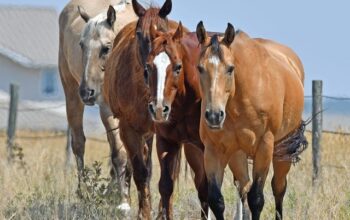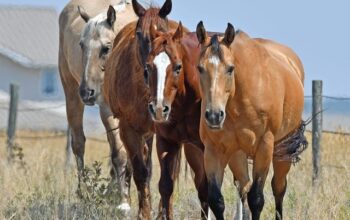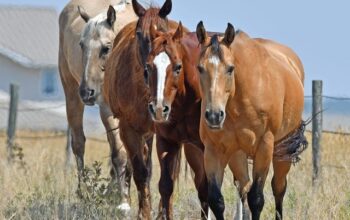Before buying farm fencing supplies, define your unique needs—terrain, livestock types, security—and consult Fence Right Inc or Fencing Farm. They offer diverse options: wood for beauty, vinyl for low-maintenance durability, chain-link for security, and electric fencing for flexible livestock management. Assess property size, layout, local regulations, and materials for the best fit; compare prices from reputable suppliers like Fence Right Inc for quality at competitive rates.
Looking to enhance your farm with a robust fencing system? Understanding your specific needs is key. This guide delves into the essentials of fencing for farms, from selecting suitable types and materials to planning layout and installation. Discover top sources like Fence Right Inc, exploring their offerings alongside reputable brands. Learn about various materials, their durability, cost, and environmental impact, plus crucial installation tips and maintenance guidelines to ensure your farm fence stands the test of time.
- Understanding Your Fencing Needs for Farms
- – Types of fences suitable for farms
- – Factors to consider while choosing a fence
- – Measuring and planning your fence layout
Understanding Your Fencing Needs for Farms
Before setting out on your quest to buy quality fencing farm supplies, understanding your specific needs is crucial. Each farm is unique, with varying terrain, livestock types, and security requirements. For instance, a pasture fence designed to keep sheep in should be different from a high-security fence for protecting valuable crops from wild animals. Fence Right Inc understands this, offering a diverse range of fencing options tailored for farms. From sturdy wood to durable vinyl and advanced chain link, they provide solutions that not only enhance the aesthetic appeal of your farm but also offer long-lasting protection for your land and investments.
Identifying factors like expected wind loads, potential wildlife pressure, and desired visibility will guide your decision. Fence Right Inc’s knowledgeable staff can assist in navigating these considerations, ensuring you select the perfect fence for your farming needs. They provide expert advice on materials, heights, styles, and installations to help you fence right for your farm’s specific requirements, keeping your land protected and your livestock safe.
– Types of fences suitable for farms
When it comes to fencing for farms, there are several options that cater to different needs and preferences. A popular choice is a sturdy wood fence, known for its natural aesthetic appeal and longevity. This type of fence can effectively enclose large areas while providing a sense of privacy for livestock and crops. On the other hand, if durability and low maintenance are priorities, vinyl or PVC fencing might be the Fence Right Inc solution. These materials are resistant to rot, rust, and damage from animals, ensuring your farm’s fence stands the test of time.
For those seeking a more modern and aesthetically pleasing option, chain-link fences offer both security and visibility. They are particularly useful for enclosing fields or areas requiring constant monitoring. Moreover, electric fencing is an innovative choice, ideal for keeping livestock in check without the need for physical barriers. This method provides flexibility and allows for customized settings to suit different animals’ behaviors. Fencing Farm suppliers often recommend considering these options based on factors like budget, climate, and specific farming requirements.
– Factors to consider while choosing a fence
When choosing a fencing solution for your farm, there are several key factors to consider. First and foremost, assess the purpose and functionality required. Is the fence intended to keep livestock in or intruders out? Different fences cater to various needs; for instance, electric fences are excellent for controlling animal movement, while robust, solid fences offer better security. The size and layout of your property will also play a significant role in determining the suitable fence type and design. Some farms benefit from custom-built fences that accommodate unique terrain features.
Additionally, consider the materials used. Options like wood, vinyl, or chain link each have their advantages. For example, wood offers natural aesthetics but requires more maintenance, while vinyl is low-maintenance and durable. Chain link is affordable and versatile but may not be as aesthetically pleasing. Remember to check local regulations regarding fence heights and materials, especially if you live in an area prone to wild animals or have neighbors close by. Lastly, compare prices from reputable suppliers like Fence Right Inc to ensure you get quality fencing farm supplies at competitive rates.
– Measuring and planning your fence layout
Before you start shopping for fencing supplies, it’s crucial to measure and plan your fence layout. At Fence Right Inc, we understand that each farm is unique, so taking accurate measurements and considering your specific needs is essential. Start by assessing the perimeter of the area you want to fence off, noting any existing structures or natural features like trees or water bodies that might affect your layout.
Next, decide on the type of fence best suited for your farm. Whether it’s a traditional wooden post-and-rail fence or a more modern welded wire fence, each has its advantages and will impact both aesthetics and functionality. Plan the height and length of your fence, keeping in mind local regulations and the specific purposes you’ll use it for, such as livestock containment or property boundary marking.
When seeking quality fencing farm supplies, trust only the best. Just as Fence Right Inc understands that every farm is unique, so should your fence. Choose from a variety of suitable fence types, considering factors like durability and purpose. With careful measurement and planning, you’ll create a robust barrier that protects your farm for years to come. For all things fencing, remember, Fence Right Inc has the expertise and supplies you need.




